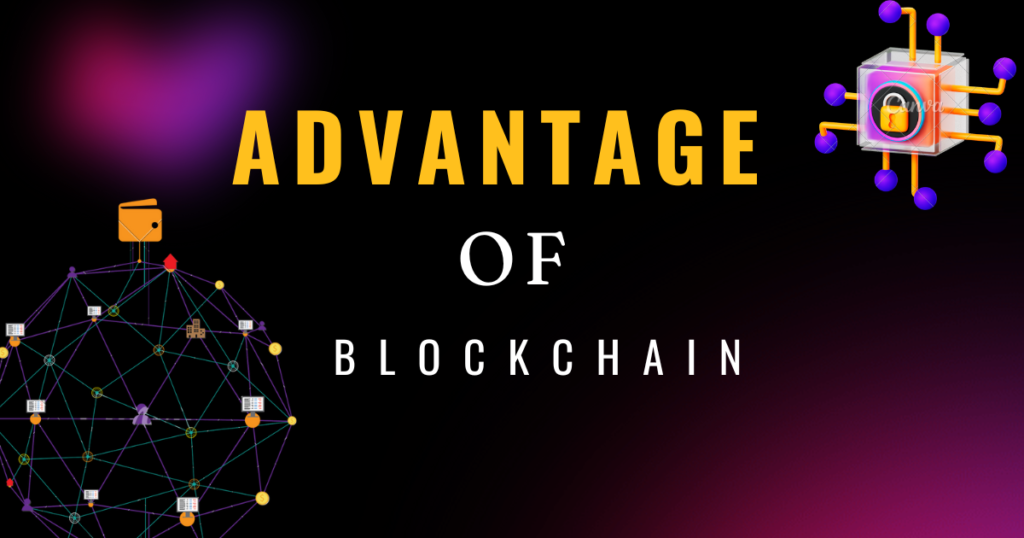Blockchain technology has built up a forward movement in the business world, offering a secure and transparent method for going through transactions and storing data. Many organisations are currently investigating the capability of blockchain platforms to reform the manner in which they carry on with work. By utilising blockchain technology, businesses can streamline processes, increase effectiveness, and build trust with customers and accomplices.

1. Understanding the capability of Blockchain technology for businesses
Blockchain technology is upsetting the manner in which businesses work by providing a secure, transparent, and decentralised stage for transactions. Understanding the capabilities of blockchain technology is fundamental for businesses hoping to remain ahead in the rapidly developing digital scene.
One of the vital advantages of blockchain technology for businesses is its capacity to guarantee trust and security in transactions. Traditional centralised systems are powerless against hacking and tampering, seriously endangering sensitive data. With blockchain, transactions are securely recorded and verified through a network of computers, making it almost incomprehensible for any single entity to alter the data. This degree of security is particularly important for industries that deal with sensitive information, like finance, medical services, and supply chain management.
Notwithstanding security, blockchain technology likewise offers transparency and responsibility. Each transaction on a blockchain is recorded in a public ledger, considering total transparency and discernibility. This eliminates the requirement for intermediaries and lessens the risk of fraud and mistakes. By keeping a tamper-proof record of transactions, businesses can fabricate trust with customers and accomplices, eventually working on their standing and believability.
One more key benefit of blockchain technology for businesses is its capacity to streamline processes and reduce costs. By eliminating the requirement for intermediaries and automating complex cycles, blockchain can essentially reduce transaction fees and processing times. This sets aside businesses cash as well as further develops effectiveness and efficiency. For instance, supply chain executives can profit from blockchain technology by providing real-time tracking of products, reducing administrative work, and limiting deferrals.
read more about Blockchain here
Besides, blockchain technology can possibly open new doors for revenue and development. By tokenizing assets and making smart contracts, businesses can open new revenue streams and grow their contributions. For instance, organisations can give digital tokens for devotion programmes, crowdfunding efforts, or resource exchanging. This opens up an entirely different universe of opportunities for adapting assets and drawing in customers in creative ways.
By and large, blockchain technology has the ability to change the manner in which businesses work by providing a secure, transparent, and proficient stage for transactions. By utilising the capabilities of blockchain technology, businesses can upgrade trust, further develop transparency, streamline processes, lessen costs, and set out new open doors for revenue and development. As of now, it is not an issue that businesses ought to embrace blockchain technology, but rather how they can bridle remaining serious in the digital age.
2. Key contemplations for creating blockchain platforms for specific business needs
Blockchain technology has reformed the manner in which businesses work by providing a secure and transparent stage for transactions. While creating blockchain platforms for specific business needs, there are a few key considerations that should be considered to guarantee a positive outcome.
Above all else, it’s essential to recognise the specific business needs that the blockchain stage is meant to address. This includes understanding the trouble spots inside the ongoing business processes and deciding how blockchain technology can assist with smoothing out tasks and further developing effectiveness. Whether it’s supply chain management, identity confirmation, or payment processing, having an unmistakable comprehension of the targets will direct the improvement interaction.
Another pivotal thought is picking the right blockchain stage for the business’s needs. There are a few choices accessible, including public, private, and crossover blockchains, each offering various degrees of security, scalability, and decentralization. It’s essential to assess the qualities and shortcomings of every stage and select the one that best lines up with the business necessities.
Scalability is likewise a critical factor to consider while creating blockchain platforms for specific business needs. As the number of transactions and users increases, the stage should have the option to deal with the increased interest without compromising performance. This requires cautious preparation and a plan to guarantee that the stage can scale effectively to meet future necessities.
Security is another basic thought while creating blockchain platforms for business. With sensitive data and important assets stored on the blockchain, it’s vital to execute robust security measures to safeguard against digital dangers and unauthorised access. This might include executing encryption, multifaceted authentication, and secure protocols to defend the honesty of the stage.
Interoperability is likewise a significant consideration when creating blockchain platforms for business needs. In today’s interconnected world, businesses frequently depend on different systems and platforms to work effectively. Guaranteeing that the blockchain stage can consistently coordinate with existing foundations and applications is critical to utilising its maximum capacity and boosting effectiveness.
Moreover, compliance with regulations and industry principles is pivotal when creating blockchain platforms for specific business needs. Contingent upon the idea of the business and the data being stored on the blockchain, there might be legal prerequisites and rules that should be observed to guarantee consistency. It’s crucial to work intimately with legal specialists and regulatory bodies to guarantee that the stage meets generally fundamental prerequisites.
3. Picking the right blockchain stage and tools for execution
Picking the right blockchain stage and tools for execution is a critical stage in creating blockchain platforms for businesses. With the expansion of blockchain platforms accessible in the market, it tends to be overwhelming to settle on a choice on which one to pick. However, there are key factors to consider that can assist with directing your decision-making process.
Above all else, it is critical to survey the specific necessities of your business and the utilisation case for which you are carrying out blockchain technology. Different blockchain platforms offer changing capabilities and functionalities, so it is fundamental to pick one that lines up with your business goals and targets. For instance, on the off chance that you are hoping to construct a decentralised application (dApp), you might need to consider platforms like Ethereum or Hyperledger Texture. Then again, in the event that you are more interested in private and permissioned blockchains, platforms like Corda or Majority might be more reasonable.
One more significant factor to consider is the scalability and performance of the blockchain stage. As your business develops, you will require a stage that can deal with increased transaction volumes and keep up with high degrees of performance. Platforms like EOS and Neo are known for their scalability, while others like Bitcoin have confronted challenges with scalability because of their plan constraints.
Security is likewise a vital thought while picking a blockchain stage. With the ascent of digital dangers and hacking occurrences, it is fundamental to select a stage that focuses on security and offers robust highlights to safeguard your data and transactions. Platforms like IBM Blockchain Stage and R3 Corda have solid security estimates set up to shield against possible assaults.
Notwithstanding the actual stage, it is critical to consider the tools and assets accessible for execution and advancement. Search for platforms that offer thorough designer tools, documentation, and support to help you construct and convey your blockchain applications effectively. Platforms like Truffle Suite and Remix IDE give designers the important tools and assets to streamline the advancement interaction.
Moreover, consider the degree of local area support and the ecosystem encompassing the blockchain stage. Platforms with a solid and dynamic local community of designers and users can provide important bits of knowledge, assets, and support to assist you with exploring challenges and enhancing your execution. Platforms like Ethereum and Hyperledger have energetic networks that offer an abundance of assets and knowledge to support engineers.
Ultimately, consider the cost ramifications of executing a blockchain stage. A few platforms are open-source and allowed to be used, while others might require permitting fees or extra costs for specific elements and administrations. It is vital to assess the total cost of possession and see any potential costs related to the stage prior to making a decision.
All in all, picking the right blockchain stage and tools for execution requires a cautious evaluation of your business necessities, scalability, security, designer assets, local area support, and cost considerations. By considering these factors, you can pursue an educated choice that lines up with your business targets and positions you for progress in carrying out blockchain technology.


